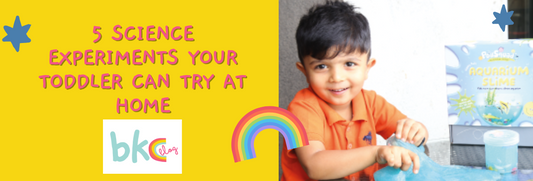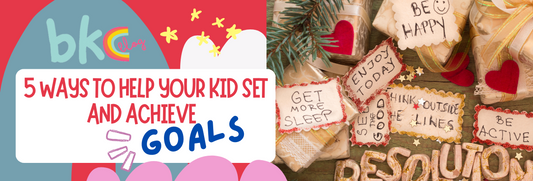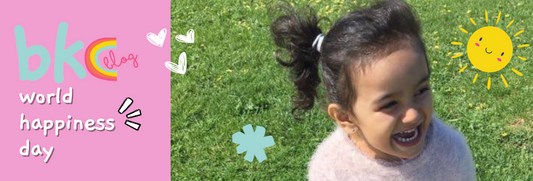Let’s face it, toddlers and preschoolers aren’t the cleanest humans. No matter how much you clean up your kids or tell them to not touch things, they always find a way to get dirty. Add Covid-19 to the mix; it’s every parent’s struggle to keep the germs off their children.

Can you believe it? The naughty toddlers from the beginning of the pandemic are now primary school children. And lockdown babies are now toddlers.
The coronavirus stripped children of their two precious years. Time that could have been spent playing with their friends, meeting their grandparents, and travelling with their caretakers without a care in the world.
Many parents had been yearning for schools to reopen so that their children can have a somewhat normal childhood with their peers. But with schools reopening, many of the same parents now have mixed feelings, all for the sake of their child’s safety. Some parents have even delayed sending their kids to school.
Let’s face it, toddlers and preschoolers aren’t the cleanest humans, which leads us to discuss an ever-important topic today: personal hygiene, particularly in young children.
Why Should Kids Follow Personal Hygiene?
Since the beginning of the pandemic, children’s health has been a cause for concern. Every time a new variant of the virus is discovered, parents everywhere ask the same question: how do I protect my child from this?
Although most younger children, school children, and adolescents present milder symptoms of the coronavirus compared to adults, it is still imperative that they follow personal hygiene and take appropriate preventive measures, especially since children under 12 aren’t as yet* eligible for the Covid-19 vaccine.
Well, easier said than done! The mini humans don’t really care about sanitising their hands after touching that handrail. And for reasons unknown, their hands are always sticky.
*As on date of publication
Practise Personal Hygiene the Fun Way
Here are some methods to encourage your child to be clean and hygienic:
1. Talk About Germs and Bacteria
Before you start with any hygiene talk, you need to give your child the talk about microbes. Sit them down and explain about the world of bacteria, viruses, and other microbes with the help of flap books.
For children above the age of seven, this book named See Inside Germs by Usborne talks about how germs are spread. For younger children (three years and above), What is a Virus? gives an age-appropriate explanation about the virus, its transmission, and personal hygiene.
You can also take a creative approach with younger children. For instance, you can get printable colouring sheets like this one from the Internet and ask your little one to colour. Ask them to tell you what they see in the picture and you can gently explain to them that germs are invisible but can be found anywhere.
Try this experiment as a way to show your child how germs can stick to our skin and be passed on through touch.
Another example, get some yarn pom-pom balls (you can find some in here) and a strip of velcro. You can ask your child to imagine the pom-poms as germs and the velcro as your skin. Demonstrate how easily the pom-poms get stuck to the velcro; you can gently go from there.
2. Smell Test
Start with a basic smell test. Ask your child to smell a flower, their favourite food, dirty clothes, their own hands when they touch something dirty. Get them to distinguish between pleasant smell and odour.
When your tot understands that they can keep the bad smell away by tidying themselves up, it’s a win-win for everyone!
3. Washing Hands
Has your child ever done something boring just because you told them to? That is why you need to make washing hands fun.
As washing hands should evolve into a lifelong habit, you would need to lead by example. Everytime you get back home from work or are about to eat, make it a point to wash your hands, even (or especially) if you are yearning to give your child a hug.
Start by rinsing your tiny’s hands. Lather hands with soap and scrub vigourously with fingers and palms for at least 40 seconds. During this time, you could sing with your child. Dedicate a song just for washing your hands. "Wash Your Hands" by Cocomelon and "This Is The Way We Wash Our Hands" are our favourites.
When you’re done, wash off the soap. Next time, rinse and repeat.
To make this habit less monotonous, you can also encourage your child to make bubbles from the lather between scrubs. However, be mindful of not wasting water.
4. Etiquette at School
With kids excited to meet their friends or make new friends, hygiene habits usually go for a toss. This is another reason to ensure your child and their friends maintain basic hygiene. If your child is particular about their habits, there is a good chance that their friends will also follow suit.
- Ensure that your child washes their hands thoroughly before and after lunch and snack time.
- If your child intends to share their lunch/snack, you could pack another tiffin box for sharing.
- Make sure your child doesn’t share their water bottle with their friends.
- Pack a small bottle of sanitiser or liquid soap in your child’s backpack. Ask them to share with friends if they don’t have soap with them.
- Educate your child to sneeze or cough with a handkerchief covering their mouth.
5. Mask Up
Children often emote with their faces, which is why masking up is often an inconvenience for them.
Talk to your child about why they need to wear masks and why they shouldn’t touch their mask when they are out. However, don’t scare them or cause them anxiety when explaining.
For children who are going to school for the first time, do carry out practice runs well in advance. Let them wear their masks during playtime and reward them when they don’t touch their faces with their hands. Encourage them to talk through their mask.
Since young children love being independent, get them different colourful masks and let them choose their mask as part of their #OOTD.
6. Social Distancing
Practising social distancing has never been easy for adults, let alone kids. With the term being used all too common, the ‘why’ is often lost. Before your child goes to school, it is important to make them understand why they need to practise safe distancing from their peers.
Explain to your child about physical personal space and what happens if a virus or a bacteria breaks through this space.
You need to sit your child down and make sure they understand why they can’t play with their friends with a cold. Or why their friend can’t keep his/her playdate because of a mild fever. ‘But, hey, you can always video call them.’
If you thought navigating Covid-19 has been difficult, the joke’s on you. Our kids have a harder time. On top of dealing with the tummy butterflies about going to an unfamiliar place that is school, your child also has to remember to maintain personal hygiene.
As we always say, loosen the reins a bit. Kids aren’t the best with self-control. If they seem to forget all about their safe habits once they see their friends, don’t lash out. Remind them gently and reward generously once back home.





